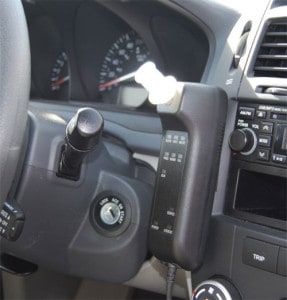 A drunk driving bill making its way through the New Jersey Legislature would expand ignition interlock use to include first-time drunk driving offenders. If the bill becomes law, New Jersey will become the 23rd or 24th state to enact an all-offender ignition interlock law, depending on the passage of Delaware’s interlock bill.
A drunk driving bill making its way through the New Jersey Legislature would expand ignition interlock use to include first-time drunk driving offenders. If the bill becomes law, New Jersey will become the 23rd or 24th state to enact an all-offender ignition interlock law, depending on the passage of Delaware’s interlock bill.
Under New Jersey’s current interlock law, only first-time offenders with a blood alcohol concentration (BAC) of 0.15 or higher and all repeat offenders are required to install the device, both during their driver’s license suspension period and after. After license restoration, first-time offenders must keep their device installed for six months to one year while repeat offenders must maintain the device for one to three years. First-time offenders with a BAC below 0.15 may be required to install the device for six months to one year upon license restoration but only at the judge’s discretion.
The new interlock bill would expand mandatory interlock installation to include first-time DUI offenders with a BAC of 0.08 to 0.14. Such first-time offenders would have to install the device for three to 12 months, unless the judge decides that aggravating factors warrant a license suspension. If offenders fail a breath test or commit another violation during the last third of the installation period, they will have to keep the device installed longer.
According to Mothers Against Drunk Driving (MADD) National President Jan Withers, drunk driving fatalities make up nearly one-third of all traffic deaths in New Jersey and throughout the U.S. However, as the non-profit organization recently testified before the New Jersey Assembly Judiciary Committee, mandatory ignition interlock installation for all convicted DUI offenders can significantly reduce drunk driving fatalities. In fact, many states that have enacted such laws have decreased drunk driving deaths by at least 30%, with Arizona and Oregon seeing reductions as high as 43% and 42%, respectively.
The Assembly Judiciary Committee unanimously passed the bill, which now moves on to the Assembly Appropriations Committee. A similar bill is also making its way through the New Jersey senate.
